John Templeton Investment Philosophies
“If you want to become really wealthy, you must have your money work for you.” – Sir John Templeton
Sir John Marks Templeton – The Man behind Templeton Growth Fund
This famous line is so true to its meaning and is often said and practiced by almost all famous and big investors of the world. Sir John Templeton, one of the famous legendary investors, mutual fund manager and the founder of the Templeton Growth Fund.
Initial Years and Religious Belief
Sir John Marks Templeton was born on 29 November, 1912 in the small town of Winchester, Tennessee in America. He was born to parents who always encouraged his curiosity, and let him do what he wanted to do. His passion for money building and business was seen in his initial years when he was in school. When he noticed that there were no fireworks in his area, he went to the neighboring city to buy consignment of fire crackers and roman candles, which he used to sell at his school playground and make money.
He attended his schooling and soon enrolled at Yale University, from where he graduated in 1934, then moved to Balliol College, Oxford, as a Rhodes Scholar, graduating with a master’s degree in law in 1936. He was raised in the liberal Cumberland Presbyterian Church and was influenced by the Unity movement, which taught positive thinking and self-discipline to harmonize life. He was always inspired by religious idealism throughout his life.
Investment Journey
His investing career started at Wall Street in 1937, where he went on to create some of the world’s largest and most successful investment funds.. He followed an investment strategy that was guided by the principles of prudence and positive thinking. He once said that the “Bull markets are born on pessimism, grown on skepticism, mature on optimism, and die on euphoria”. “The time of maximum pessimism is the best time to buy, and the time of maximum optimism is the best time to sell.”
He followed the strategy of “buy low, sell high”, and this he did to extreme levels where he picked nations, industries and companies hitting rock bottom, which he often referred to, “points of maximum pessimism”. Templeton strategy for selecting a company did not care about the location of the company, and if it was selling below what he considered to be its asset value, and if it was in an industry that was “out of favour”, he was interested in it.
During the World War II time that broke out in Europe in 1939, he borrowed $10,000 from his boss and invested $100 in every share priced at a dollar or less, and bought a total of 104 shares of 34 companies that were almost bankrupt. And after four years of his investment his money magnified and he almost quadrupled his investment. His investments almost gave him a 400% return, where almost 30 companies grew to its maximum and 4 of them turned out to be worthless.
This was typical of his contrarian strategy, capitalizing on the fears of the market, as he said “It is impossible to produce superior performance unless you do something different from the majority”. And this strategy often requires strength of character and independence of thought to which he said, “It takes patience, discipline and courage to follow the contrarian route to investment success. To buy when others are despondently selling, to sell when others are avidly buying”. He believed that one can easily find a nation, company or sector that is rejected by the majority of investors, provided we look wide enough. This also is one of his hallmark styles of investing. “The best time to invest is when you have money. This is because history suggests it is not timing which matters, but time”.
Templeton bought a small investment advisory company in 1940 that managed $2 million. By the time he sold his stake in 1967, it was managing $400 million. He entered the mutual fund business in 1954, where he established the Templeton Growth Fund. The fund was performing with an average 14.5% annualized gain for over the next 38 years, outperforming the broader stock market indexes. In other words, we can say that each $10,000 invested into this fund in 1954, with dividends reinvested, would have grown to $2 million by 1992 when he sold the fund to the Franklin Group.
He was a pioneer of the emerging markets. His farsightedness and look wide approach helped him in recognising that Japan was completely underestimated and undervalued during the 1960s. He was among the first to sell out of Japan in the mid-1980s and he was one of the very few who invested in Peru when the communist Shining Path was running rampant, and by doing so, he reaped a fortune for his investors.
He always believed to look outside for better opportunities of investment, where he once said, “it makes sense that you will find better investment opportunities when you search everywhere in the world instead of just at home”. So, his philosophy was always global and he was also considered to be the global or the international value investing guru.
Templeton founded a number of mutual funds and asset managers, the largest of which was the Templeton Funds Group. He was the pioneer of global investing, where he started investing in global markets when every other investor dared to do so. As a mutual fund investor, his interest started to widen in the 1950s, where he started funds, specializing in nuclear energy, chemicals, electronics and technology. In 1959, with five funds and $66 million under management, he joined a surge of funds going public and the growth was drastic. He was growing successfully and he attributed his success to his diligent research and some to his relocation to the Bahamas in 1968. He even adopted the British citizenship, which also helped him get rid of the US taxes. Ethics was very important to Sir John Templeton, and he believed that unethical businesses may succeed in the short term but would eventually fail in the long term.
Philanthropy
Since he always believed in god and unity, he also considered spiritualism and closeness to god, one of the major factors of his successful journey. Templeton in his career, always believed in philanthropy and was always involved in such activities. Since he grew financially more stable and successful, he got himself involved in philanthropy. Throughout his life he always tried to bridge the gap between spiritualism and science by constant and considerable efforts and research.
One of his first philanthropic initiatives was the Templeton Prize for Progress in Religion, which he created in 1972. He offered a prize that was larger than the Nobel Prizes. The first honor was given to Mother Teresa. Few other notable Templeton prize winners include Frère Roger, Cicely Saunders, Billy Graham, Aleksandr Solzhenitsyn, Stanley Jaki, Baba Amte, Charles Colson, and the Dalai Lama.
In 1987, Templeton established the John Templeton Foundation as a philanthropic vehicle to bridge the gap between science and spiritualism. The foundation awarded prizes and grants of $70m annually to support research on the ‘Big Questions’, which focuses on four basics, Science (in particular math, physics, biology, psychology and sociology), Character Development, Free Enterprise and Genetics. Through his foundation, he funded ventures ranging from an essay competition for youngsters to explore the spiritual principles of life, to an honor roll for character building at universities to new college at Oxford University.
Sir John Templeton received many honors and awards during his lifetime, including a Knighthood from Queen Elizabeth II. He led a very simple and modest lifestyle and always flew in economy class throughout his life. He was a man known for his humility and his belief in unity and god.
Success Principles and Rules of Investing
“When buying stocks, search for bargains among quality stocks.” – Sir John Templeton
Sir John Templeton was always a believer and practitioner of value investing rather than growth investing, despite the name of his flagship fund Templeton Growth Fund. Money Magazine in 1999 called him “arguably the greatest global stock picker of the century”.
Sir John Templeton focused on buying undervalued stocks and tried holding them until their price rose to fair market value. His average holding period was about four years. He believed that holding assets priced above fair market value, in the hopes that they would further increase in price, was speculation and not investing. However, Templeton did not buy stocks only because they were undervalued but he also invested in companies which he thought were profitable, well managed with long term potential. He always tried to avoid the herd by emphasizing more on the overlooked or unpopular stocks, as he believed that “Outstanding performance cannot come from someone who is always part of the herd”.
He was known to take profits when values and expectations were high. Now let us see what we can learn from his fantabulous investment journey.
Templeton’s Rules of Investing
- Invest, don’t trade or speculate
- Buy low
- When buying stocks, search for bargain
- Invest for maximum total real return
- Don’t run with the herd, Invest when going is tough
- Invest worldwide – be open and flexible
- Diversify your investment
- Buy value and quality, not market trends or the economic outlook
- Monitor your investment aggressively
- Look for valuation of the company
- Don’t panic and learn from your own mistakes
- Begin with a prayer
These are few of his most preached and practiced rules of investing, though there are many one can learn from his style of investment. Templeton was an investor, not a trader. But even for patient investors, it can be frustrating to watch a cheap stock get even cheaper before the rest of the crowd catches on. In 1988, Templeton gave an important piece of advice that is very much relevant today, “Always put your new investment ideas on a watch list, or take a small position before rushing in. If it’s a truly great bargain, there’s no need to hurry”.
He also gave a brilliant piece of advice to Forbes in 1978, that “I never ask if the market is going to go up or down because I don’t know, and besides it doesn’t matter. I search nation after nation for stocks, asking: ‘Where is the one that is lowest-priced in relation to what I believe it is worth?’ Forty years of experience have taught me you can make money without ever knowing which way the market is going”.
He used to say, “If you want to have a better performance than the crowd, you must do things differently from the crowd.”. He once stated that, “It’s not easy, but if you’re going to buy the best bargains, look in more than one industry, and look in more than one nation.”
His advice was simple, but not easy to implement, as he said, “To buy when others are despondently selling and to sell when others are greedily buying requires the greatest fortitude and pays the greatest reward.” Speaking about a few dangers to his investors, Templeton spoke about, one of his most famous quotes, “The four most dangerous words in investing are “This time it’s different”.
Investors can learn a lot from his quotes and advice and implement them in their investment strategies to make money. Templeton survived and thrived through countless crises in his journey and investors will also have to get through this as well, so they need to be steady and disciplined in their approach and also have to set their emotions aside. To conclude the article, we would like to end with his famous lines, “Defer pleasure until the job is done” – John Templeton.
Howdy!
If you’re here for the first time, let’s get introduced.
VRD Nation is India’s premier stock market training institute and we (Team VRD Nation) are passionate about teaching each and every aspect of investing and trading.
If you’re here for the first time, don’t forget to check out “Free Training” section where we have tons of free videos and articles to kick start your stock market journey.
Also, we got two awesome YouTube channels where you can continue the learning process.
Must-Read Articles
John Templeton Investment Philosophies
“If you want to become really wealthy, you must have your money work for you.” – Sir John Templeton
Sir John Marks Templeton – The Man behind Templeton Growth Fund
This famous line is so true to its meaning and is often said and practiced by almost all famous and big investors of the world. Sir John Templeton, one of the famous legendary investors, mutual fund manager and the founder of the Templeton Growth Fund.
Initial Years and Religious Belief
Sir John Marks Templeton was born on 29 November, 1912 in the small town of Winchester, Tennessee in America. He was born to parents who always encouraged his curiosity, and let him do what he wanted to do. His passion for money building and business was seen in his initial years when he was in school. When he noticed that there were no fireworks in his area, he went to the neighboring city to buy consignment of fire crackers and roman candles, which he used to sell at his school playground and make money.
He attended his schooling and soon enrolled at Yale University, from where he graduated in 1934, then moved to Balliol College, Oxford, as a Rhodes Scholar, graduating with a master’s degree in law in 1936. He was raised in the liberal Cumberland Presbyterian Church and was influenced by the Unity movement, which taught positive thinking and self-discipline to harmonize life. He was always inspired by religious idealism throughout his life.
Investment Journey
His investing career started at Wall Street in 1937, where he went on to create some of the world’s largest and most successful investment funds.. He followed an investment strategy that was guided by the principles of prudence and positive thinking. He once said that the “Bull markets are born on pessimism, grown on skepticism, mature on optimism, and die on euphoria”. “The time of maximum pessimism is the best time to buy, and the time of maximum optimism is the best time to sell.”
He followed the strategy of “buy low, sell high”, and this he did to extreme levels where he picked nations, industries and companies hitting rock bottom, which he often referred to, “points of maximum pessimism”. Templeton strategy for selecting a company did not care about the location of the company, and if it was selling below what he considered to be its asset value, and if it was in an industry that was “out of favour”, he was interested in it.
During the World War II time that broke out in Europe in 1939, he borrowed $10,000 from his boss and invested $100 in every share priced at a dollar or less, and bought a total of 104 shares of 34 companies that were almost bankrupt. And after four years of his investment his money magnified and he almost quadrupled his investment. His investments almost gave him a 400% return, where almost 30 companies grew to its maximum and 4 of them turned out to be worthless.
This was typical of his contrarian strategy, capitalizing on the fears of the market, as he said “It is impossible to produce superior performance unless you do something different from the majority”. And this strategy often requires strength of character and independence of thought to which he said, “It takes patience, discipline and courage to follow the contrarian route to investment success. To buy when others are despondently selling, to sell when others are avidly buying”. He believed that one can easily find a nation, company or sector that is rejected by the majority of investors, provided we look wide enough. This also is one of his hallmark styles of investing. “The best time to invest is when you have money. This is because history suggests it is not timing which matters, but time”.
Templeton bought a small investment advisory company in 1940 that managed $2 million. By the time he sold his stake in 1967, it was managing $400 million. He entered the mutual fund business in 1954, where he established the Templeton Growth Fund. The fund was performing with an average 14.5% annualized gain for over the next 38 years, outperforming the broader stock market indexes. In other words, we can say that each $10,000 invested into this fund in 1954, with dividends reinvested, would have grown to $2 million by 1992 when he sold the fund to the Franklin Group.
He was a pioneer of the emerging markets. His farsightedness and look wide approach helped him in recognising that Japan was completely underestimated and undervalued during the 1960s. He was among the first to sell out of Japan in the mid-1980s and he was one of the very few who invested in Peru when the communist Shining Path was running rampant, and by doing so, he reaped a fortune for his investors.
He always believed to look outside for better opportunities of investment, where he once said, “it makes sense that you will find better investment opportunities when you search everywhere in the world instead of just at home”. So, his philosophy was always global and he was also considered to be the global or the international value investing guru.
Templeton founded a number of mutual funds and asset managers, the largest of which was the Templeton Funds Group. He was the pioneer of global investing, where he started investing in global markets when every other investor dared to do so. As a mutual fund investor, his interest started to widen in the 1950s, where he started funds, specializing in nuclear energy, chemicals, electronics and technology. In 1959, with five funds and $66 million under management, he joined a surge of funds going public and the growth was drastic. He was growing successfully and he attributed his success to his diligent research and some to his relocation to the Bahamas in 1968. He even adopted the British citizenship, which also helped him get rid of the US taxes. Ethics was very important to Sir John Templeton, and he believed that unethical businesses may succeed in the short term but would eventually fail in the long term.
Philanthropy
Since he always believed in god and unity, he also considered spiritualism and closeness to god, one of the major factors of his successful journey. Templeton in his career, always believed in philanthropy and was always involved in such activities. Since he grew financially more stable and successful, he got himself involved in philanthropy. Throughout his life he always tried to bridge the gap between spiritualism and science by constant and considerable efforts and research.
One of his first philanthropic initiatives was the Templeton Prize for Progress in Religion, which he created in 1972. He offered a prize that was larger than the Nobel Prizes. The first honor was given to Mother Teresa. Few other notable Templeton prize winners include Frère Roger, Cicely Saunders, Billy Graham, Aleksandr Solzhenitsyn, Stanley Jaki, Baba Amte, Charles Colson, and the Dalai Lama.
In 1987, Templeton established the John Templeton Foundation as a philanthropic vehicle to bridge the gap between science and spiritualism. The foundation awarded prizes and grants of $70m annually to support research on the ‘Big Questions’, which focuses on four basics, Science (in particular math, physics, biology, psychology and sociology), Character Development, Free Enterprise and Genetics. Through his foundation, he funded ventures ranging from an essay competition for youngsters to explore the spiritual principles of life, to an honor roll for character building at universities to new college at Oxford University.
Sir John Templeton received many honors and awards during his lifetime, including a Knighthood from Queen Elizabeth II. He led a very simple and modest lifestyle and always flew in economy class throughout his life. He was a man known for his humility and his belief in unity and god.
Success Principles and Rules of Investing
“When buying stocks, search for bargains among quality stocks.” – Sir John Templeton
Sir John Templeton was always a believer and practitioner of value investing rather than growth investing, despite the name of his flagship fund Templeton Growth Fund. Money Magazine in 1999 called him “arguably the greatest global stock picker of the century”.
Sir John Templeton focused on buying undervalued stocks and tried holding them until their price rose to fair market value. His average holding period was about four years. He believed that holding assets priced above fair market value, in the hopes that they would further increase in price, was speculation and not investing. However, Templeton did not buy stocks only because they were undervalued but he also invested in companies which he thought were profitable, well managed with long term potential. He always tried to avoid the herd by emphasizing more on the overlooked or unpopular stocks, as he believed that “Outstanding performance cannot come from someone who is always part of the herd”.
He was known to take profits when values and expectations were high. Now let us see what we can learn from his fantabulous investment journey.
Templeton’s Rules of Investing
- Invest, don’t trade or speculate
- Buy low
- When buying stocks, search for bargain
- Invest for maximum total real return
- Don’t run with the herd, Invest when going is tough
- Invest worldwide – be open and flexible
- Diversify your investment
- Buy value and quality, not market trends or the economic outlook
- Monitor your investment aggressively
- Look for valuation of the company
- Don’t panic and learn from your own mistakes
- Begin with a prayer
These are few of his most preached and practiced rules of investing, though there are many one can learn from his style of investment. Templeton was an investor, not a trader. But even for patient investors, it can be frustrating to watch a cheap stock get even cheaper before the rest of the crowd catches on. In 1988, Templeton gave an important piece of advice that is very much relevant today, “Always put your new investment ideas on a watch list, or take a small position before rushing in. If it’s a truly great bargain, there’s no need to hurry”.
He also gave a brilliant piece of advice to Forbes in 1978, that “I never ask if the market is going to go up or down because I don’t know, and besides it doesn’t matter. I search nation after nation for stocks, asking: ‘Where is the one that is lowest-priced in relation to what I believe it is worth?’ Forty years of experience have taught me you can make money without ever knowing which way the market is going”.
He used to say, “If you want to have a better performance than the crowd, you must do things differently from the crowd.”. He once stated that, “It’s not easy, but if you’re going to buy the best bargains, look in more than one industry, and look in more than one nation.”
His advice was simple, but not easy to implement, as he said, “To buy when others are despondently selling and to sell when others are greedily buying requires the greatest fortitude and pays the greatest reward.” Speaking about a few dangers to his investors, Templeton spoke about, one of his most famous quotes, “The four most dangerous words in investing are “This time it’s different”.
Investors can learn a lot from his quotes and advice and implement them in their investment strategies to make money. Templeton survived and thrived through countless crises in his journey and investors will also have to get through this as well, so they need to be steady and disciplined in their approach and also have to set their emotions aside. To conclude the article, we would like to end with his famous lines, “Defer pleasure until the job is done” – John Templeton.

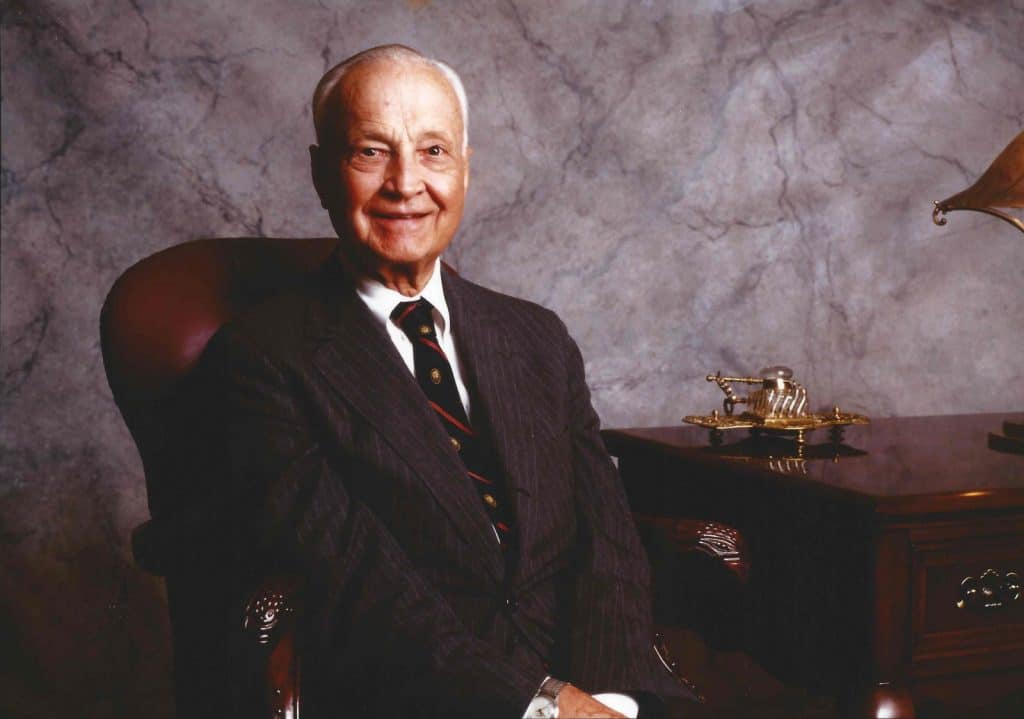












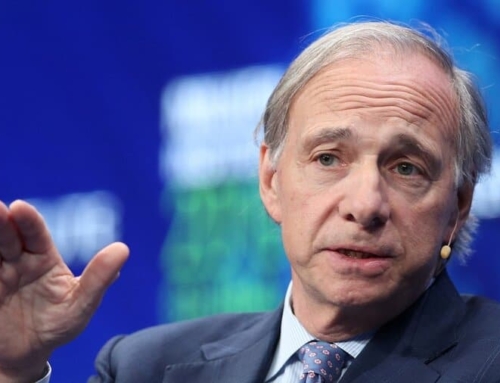
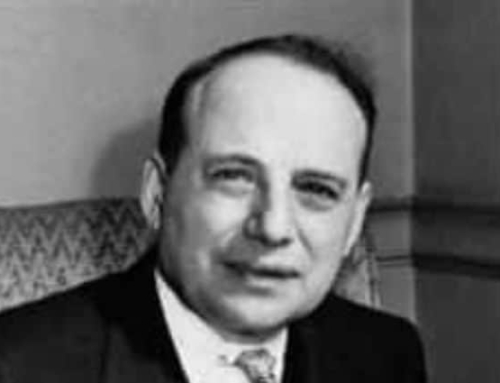
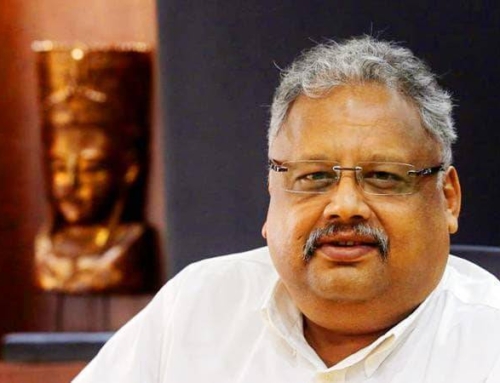
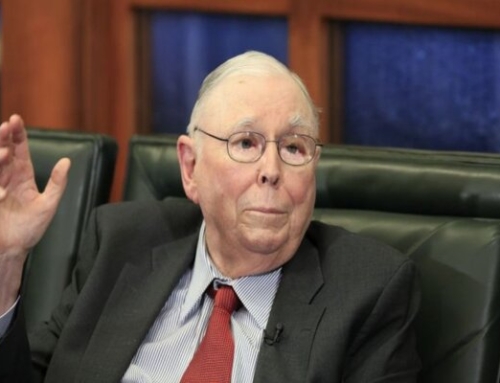


Leave A Comment